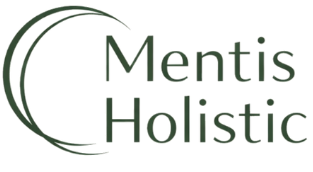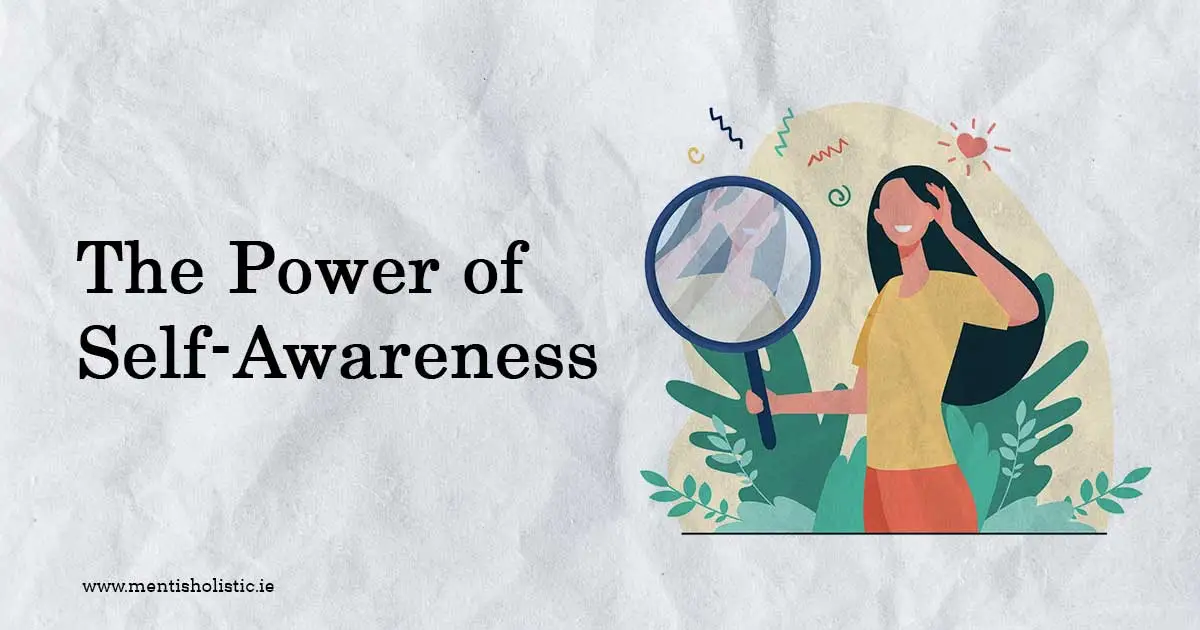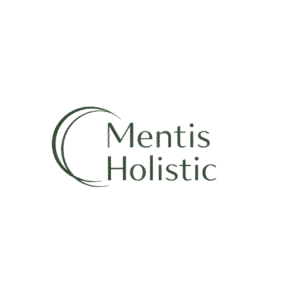Life often feels like a hurricane: hectic mornings, perpetual comparisons, and silent fights we barely discuss. The power of self awareness can be a silent anchor in our lives in such moments. Self-awareness is more than simply “knowing ourselves.” It is the courage to look inward, the tenderness to sit with our emotions without judgment, and the wisdom to see how our inner world shapes our outer world.
Once we truly accept our truths and realities, we cease to live on autopilot. We begin to live with intention, compassion, and authenticity, and that changes everything.
Why the Power of Self Awareness Matters
Self-awareness is powerful. It is its life-changing skill that allows you to take a break in the hectic world. You no longer find yourself carried away by the old ways, but you become clear enough to make a different and better choice.
In her study, organisational psychologist, Dr Tasha Eurich discovered that self-awareness enhances creativity, confidence and ethical decision-making. Self-aware individuals are less likely to lie, cheat, or cut corners, because they’re grounded in values instead of impulses.
- In the workplace, it is associated with better leadership, a happier workforce, and purposeful careers. Leaders who know their strengths and blind spots can inspire trust and growth.
- In relationships, it helps us break cycles of misunderstanding, which makes room for deeper empathy and connection.
- In personal life, it gently teaches us to be less harsh with ourselves and kinder toward others.
In short, self-awareness does not merely alter your perception of yourself, but also changes your way of life and love.
The Four Pillars of Self-Awareness
Self-awareness is based on four powerful pillars, which include emotional awareness, self-reflection, perspective-taking, and personal growth.
- Emotional Awareness: It is the capacity to know how you feel and why. For example, instead of snapping at someone after a stressful day, you notice, “I’m not angry at them, I’m overwhelmed from work.” This mere realisation helps to avoid unnecessary pain and develop resilience
- Self-Reflection: It means being able to look inward with honesty, yet compassion. Reflection encourages growth: asking yourself, “What can I learn from this?” Rumination, however, keeps you stuck in shame. Learning the difference is vital.
- Perspective-Taking: It is seeing yourself through the eyes of others. This doesn’t mean losing yourself in their opinions, but understanding how your actions affect them. Perspective-taking builds empathy and strengthens relationships.
- Personal Growth: It is the use of insights to take small but meaningful steps toward the life you want. For example, if you realise your job drains your energy, growth may mean exploring roles more aligned with your values.
When nurtured, these four pillars help you feel more grounded, compassionate, and aligned with your true self.
What Causes Lack of Self-Awareness?
Avoiding self-awareness is often easier than facing what’s inside. Many people shy away from it because:
- Fear of Judgment: Individuals are scared of what they could find out about themselves.
- Denial and Defence: Many of us pretend to be okay simply to keep away from a few harsh realities about ourselves.
- Cultural Conditioning: Some cultures are conditioned to disregard emotions by equating success with introspection.
- Childhood Environments: Being brought up in an emotionally non-validating environment may make self-reflection unsafe.
- Busyness and Distraction: Full-time employment, screens, and noise do not leave much to reflect on.
But avoidance doesn’t erase pain; it buries it. And what we bury eventually resurfaces as stress, conflict, or dissatisfaction. Even small acts of courage, like writing down your feelings at night or asking a friend for honest feedback, begin to rebuild trust in yourself.
Book Your Appointment Today

When Self-Awareness Feels Like Too Much
Sometimes, self-awareness isn’t gentle at all; it is like being overwhelmed with thoughts and feelings. For survivors of trauma, being “too self-aware” can actually be a form of hypervigilance. It can be protective in the beginning, but in the long run, it is tiring to scan your feelings, your body, or what is around you.
Clinical studies indicate that trauma can make individuals disconnected from their bodies. Many describe it as: “I don’t feel like myself.”
The positive thing is that with the help of therapy and mindfulness, self-awareness may become not a struggle to survive but a therapeutic practice. Instead of hyper-awareness, you get to know balanced awareness, which is quite a safe approach to being present without being lost in your own inner world. If you’re curious, therapy can support this journey.
The Benefits of the Power of Self-Awareness
The beauty of self-awareness is that it touches upon all the spheres of life. It is a mirror which reflects you not only in your face, but in your soul as well.
- Healing Emotional Pain: Most of us carry unspoken wounds: memories we’ve never fully processed. Self-awareness invites us to sit with these emotions and whisper, “I see you, and it’s okay.” The healing process starts not with neglecting pain, but with the recognition of the pain. With time, what was unbearable previously becomes soft, lightweight and easy to bear.
- Deeper Relationships: Once you identify your triggers, fears and joys, you will no longer project them onto other people. You are more accepting, understanding, and compassionate. Instead of building walls to protect yourself, you build bridges that invite genuine connection.
- Clarity and Direction: Life feels confusing when you’re disconnected from yourself. Decisions feel like guesses. But self-awareness acts as an inner compass as it points you back to your values. Instead of chasing what others expect, you start choosing what feels true to you.
- Inner Peace: Much of our suffering comes from resisting what is. When you practice self-awareness, you stop fighting with yourself. You begin to accept your struggles as part of your story. Slowly, the storms within you quiet down, and in their place, you find calm.
- Courage to Grow: Growth requires vulnerability. It requires the willingness to face your flaws and embrace them. Self-awareness teaches you that flaws aren’t failures, they’re fingerprints of your humanity. By accepting them, you open the door to transformation.
How to Develop the Power of Self-Awareness
The power of self-awareness can be developed. It is not the rigid rules that can develop self-awareness, but some rather soft day-to-day routines:
- Spend Time with Yourself: Take time out of your day just to spend with yourself. Even a couple of silent minutes writing, meditating, listening to a podcast or being silent could make you listen to your inner voice.
- Observe Without Judgment: Instead of fighting your feelings, allow them. Whisper to yourself, “It’s okay to feel this way.”
- Ask Softer Questions: Instead of criticising yourself with “Why am I like this?” try asking, “What is my heart trying to teach me?” Such questions open the door to understanding rather than shame.
- Seek Gentle Feedback: Sometimes our own light is hidden from us, but it shines clearly in the eyes of those who care. Allow trusted loved ones to remind you of your strengths, to reflect the beauty you may not yet see in yourself.
- Practice Compassion Daily: Above all, remember that self-awareness blossoms in kindness. Speak to yourself the way you would to a dear friend—with gentleness, patience, and love. When you stumble, forgive yourself. When you succeed, celebrate yourself.
Self-awareness can be nurtured with these small changes in your daily life. Still, if your inner struggles feel heavy, therapy can be life-changing. A therapist offers not just tools, but a safe companionship for the journey inward.
Remember: Seeking therapy doesn’t mean you are broken, it means you are brave enough to grow. If you’d like to explore this path, Mentis Holistic may help.
Bottom Line: Coming Home to Yourself
Self-awareness is such a strong thing, it is like going home after years of being lost. It also makes you remember that you are not broken, not behind, not less than. You are simply human, learning to understand yourself, step by step.
With every moment of awareness, you free yourself from old patterns and open the door to love, peace, and growth. Choosing self-awareness is choosing kindness and that may be the most life-changing choice you ever make.
FAQs
Why is self-awareness so powerful?
Self-awareness is powerful because it helps you understand yourself deeply, regulate emotions, and build healthier relationships.
What are the 4 pillars of self-awareness?
Emotional awareness, self-reflection, perspective-taking, and personal growth are 4 pillars of self-awareness.
What are the five elements of self-awareness?
Honesty, emotional regulation, empathy, awareness of values, and commitment to growth.
What causes lack of self-awareness?
Fear, denial, cultural conditioning, or avoidance of difficult emotions causes a lack of self-awareness.
Is being too self-aware a trauma response?
In some cases, yes, trauma can make people hyper-aware, but this can be softened into healthy awareness with care.



